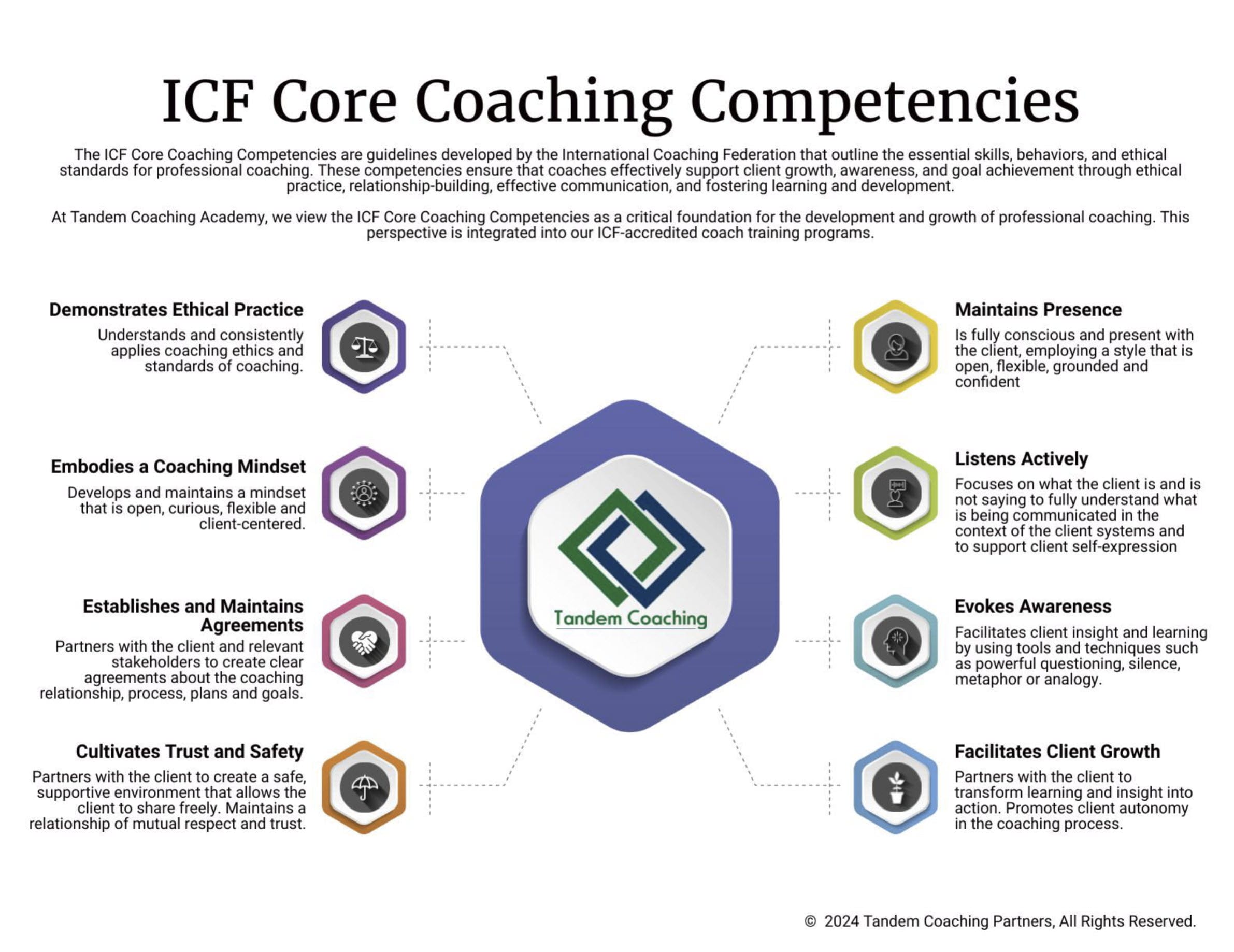With the release of its new ICF Core Competencies Model, International Coaching Federation has taken an expanded approach to competency in co-creating the coaching relationship with the client. In the new model, section B focuses on three competencies needed to properly co-create the relationship with the client:
- 3. Establishes and Maintains Agreements
- 4. Cultivates Trust and Safety
- 5. Maintains Presence
In the next several articles, will cover these competencies specifically.
ICF Core Competencies model defines the competency of Establishes and Maintains Agreements as partnering with the client and relevant stakeholders to create clear agreements about the coaching relationship, process, plans and goals. It further expands the competency to include establishing agreements for the overall coaching engagement and those for each coaching session.
This focus on the coaching relationship has been much needed, and I’m encouraged to see ICF moving in this direction as an overall focus of coach competency. My experience has been that coaching schools have not appropriately focused on the entire relationship with the coaching client, including establishing the relationship and closing the relationship. In my experience as a client I have noticed that when starting a relationship with a new coach I am often surprised to find out that the coach doesn’t start that relationship co-creating the engagement with me. Schools have focused on creating the coaching agreement in the coaching session, which is extremely important, but have often failed to equip coaches to have strong full engagements with the client by managing the expectations, understanding of coaching, and setting and managing goals and progress with the client.
To support this particular ICF Core Competency I developed a model to help me in my coaching practice called STORMMES©. This model helps the coach develop a strong relationship agreement with the client at the onset of the engage and provides a way for them to schedule regular check-ins to measure progress and adjust overarching goals. STORMMES© is an acronym that stands for the following conversations a coach and client should have when co-creating their relationship.
As with using any model, these may not be discussed in the order presented. Coaches should always be responsive to client’s needs above holding tight to using a model as presented.
- S – SUBJECT (overall focus of the coaching engagement)
- T – TIMEFRAMES (engagement length, progress checks, session length, regularity)
- O – OUTCOMES (desired outcomes of the coaching engagement- goals)
- R – ROLES (education on what to expect in the coaching process, confidentiality, ethics, responsibility for change, role of coach, role of client, preparation for sessions, reflecting after sessions, work between sessions, how to make engagement most effective, client needs, coach needs, legal terms, ending the engagement, etc.)
- M – MEASURES (how coach and client will know goals are met, milestones)
- M – MOTIVATION (why goals are relevant and the value they will bring to the life of the client, why the client is seeking coaching at this point in their life, what will happen if the client doesn’t make changes)
- E – ENVIRONMENT (what systemic factors promote and prevent success for the client, who are the stakeholders that may impact progress)
- S – START (priority of goals, where the client wants to focus first, how the client wants to begin the work of coaching)
This model can be a helpful framework to ensure that your work with the client is set up for success. I encourage you to utilize this model and adjust it to develop a stronger method of co-creating your coaching engagements.
This article is a part of the Tandem Coaching Academy Coaching Textbook.
Read Other Posts of the ICF Core Competencies Series

Unlock Your Coaching Potential with Tandem!
Dive into the essence of effective coaching with our exclusive brochure, meticulously crafted to help you master the ICF Core Coaching Competencies.
"*" indicates required fields
About the Author
Cherie Silas, MCC
She has over 20 years of experience as a corporate leader and uses that background to partner with business executives and their leadership teams to identify and solve their most challenging people, process, and business problems in measurable ways.















